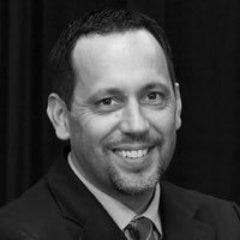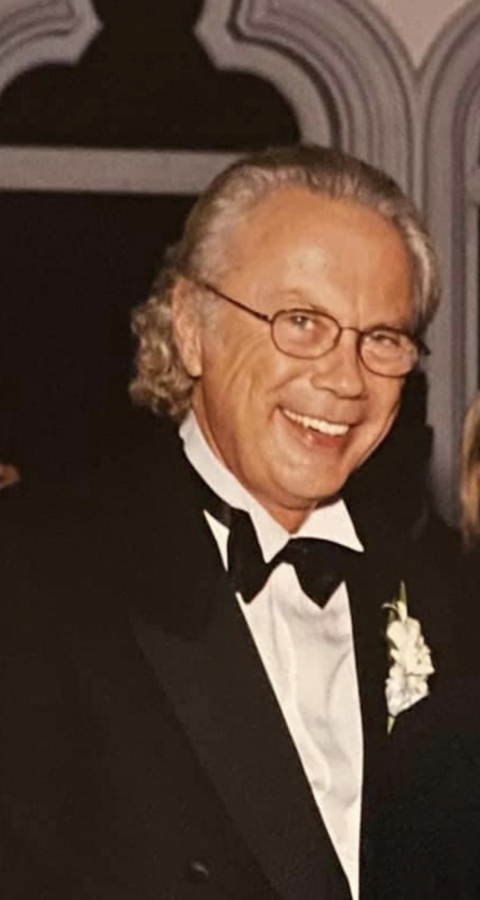Lefty and Dandy Don: How a Grosse Pointe bookie allegedly cheated Phil Mickelson
 Robert Snell
Robert SnellDetroit — A mob-connected bookie from Grosse Pointe Park handled lucrative bets for Phil Mickelson and was accused of cheating the PGA Tour golfer out of $500,000, according to federal court records obtained by The Detroit News.

Previously unreported gambling allegations outlined in a trial transcript filed in federal court in Detroit link Mickelson with one of the biggest gamblers in Detroit history, “Dandy" Don DeSeranno, who also handled bets for big shots as a Las Vegas casino host and bookie from 1994-2002.
Mickelson, who has not been accused of wrongdoing, is headlining the Rocket Mortgage Classic at Detroit Golf Club, which starts Thursday. Mickelson, 51, is scheduled to make his first appearance at the tournament two months after he became the oldest major champion in golf history by winning the PGA Championship.
According to the trial transcript, DeSeranno was questioned about Mickelson after receiving immunity from federal prosecutors and testified as a government witness in the 2007 racketeering trial of Jack Giacalone, a reputed organized crime leader in Metro Detroit. Giacalone's dad was the late, admitted mob captain Vito "Billy Jack" Giacalone, a suspect in the unsolved disappearance of Teamsters President Jimmy Hoffa. And his uncle, the late mob captain Anthony "Tony Jack" Giacalone, was supposed to meet Hoffa the day the labor leader disappeared in 1975.
The Mickelson connection was a well-hidden curveball thrown during cross-examination of DeSeranno during the Giacalone trial in 2007 and designed to damage the bookie's credibility. Neither the federal prosecutor nor DeSeranno's lawyer knew about the Mickelson link until hearing it in court while DeSeranno claimed not to recognize the name of the world-famous golfer.
"Did you cheat — do you know Phil Mickelson, the golfer?" Giacalone's lawyer, Neil Fink, asked.
"Who?" DeSeranno said.
"Phil Mickelson," Fink said, "the golfer."
"Yes," DeSeranno said.
"Lefty?" the lawyer said, using Mickelson's nickname.
"Yes," DeSeranno said.
“Did you cheat him out of $500,000?” Fink said.
“I wouldn’t say I cheated him,” DeSeranno said.
"What would you call it?" Fink said. "What did you do?"
“I couldn’t pay him," DeSeranno said.
“You booked his action, correct?” Fink said.
“Yes,” DeSeranno said.

Mickelson did not know about DeSeranno’s background while placing sports bets with the bookie, the golfer’s lawyer, Glenn Cohen, told The News on Tuesday.
"It’s old news," Cohen said, "and my client didn’t do anything wrong.”
Although the trial happened in 2007, the transcript did not appear in Giacalone’s court file until 2018, 11 years after his acquittal, and was discovered as Giacalone faced prison time earlier this month in connection with an overdue tax bill of more than $537,222.
DeSeranno and Mickelson made an unlikely pair.
The government considered DeSeranno an associate of the national mafia organization La Cosa Nostra, or LCN for short, who worked as a host for Hilton Hotels and Casino in Las Vegas.
DeSeranno gambled and lost big, from $300,000-$500,000 a year.
“He was what was characterized as an LCN associate,” said former Assistant U.S. Attorney Keith Corbett, who was chief of the federal Organized Crime Strike Force in Detroit. "He came from a family with a lot of money, and he lost a lot of money to mob guys and other people in gambling. He dealt with these people on a regular basis."
DeSeranno was a bankrupt U.S. Army veteran who used to play blackjack and bet on sports with interest earned on a $4 million trust fund. He drove a fleet of Ford Thunderbirds — one red (1957), one white (1955) one blue (1956) — and favored flashy clothes.
"Unbuttoned shirts and gold medallions — the whole nine yards," Corbett said.
Mickelson, meanwhile, is a fan favorite, winner of six major championships and ranks second on the all-time PGA Tour money list with more than $94.6 million. And he has earned almost $800 million in endorsements, according to Forbes.

DeSeranno's time in Las Vegas overlapped with Mickelson's rise in professional golf, a career that has occasionally been touched by scandal.
Las Vegas gambler William “Billy” Walters was convicted in an insider trading case in 2017 that had ties to the golfer. Walters was convicted of conspiracy, securities fraud and wire fraud after prosecutors told a jury he helped Mickelson earn $1 million in 2012 with stock trades in a Dallas-based company so the golfer could cover gambling debts, according to the Associated Press.
President Donald Trump commuted Walters' five-year federal prison sentence in January.
The Securities and Exchange Commission cited Mickelson for the trades in a lawsuit, and Mickelson agreed to repay the money. Mickelson was not charged with wrongdoing.
Mickelson had won three major championships by the time DeSeranno sat down to testify in the Giacalone trial on April 25, 2007.
DeSeranno was a key witness for federal prosecutors trying to convince jurors that Giacalone was a menacing figure involved in a gambling ring that netted $5.9 million.
He told jurors Giacalone demanded repayment of a debt during a meeting at the lakeside Beach Grill in St. Clair Shores in August 2003.
“Did he tell you how much money he thought you owed him?” Corbett asked DeSeranno, according to the transcript. “What did he say?”

“$300 f------ thousand,” DeSeranno said. “I noticed he was very angry.”
The case against Giacalone ran into trouble during cross-examination.
Fink, who died in 2016, was one of Detroit's top criminal defense lawyers, a skilled questioner described in a 1970 profile as a "stalking tiger, a miniature barracuda" and "five feet seven inches of abrasiveness."
"I feel bad for any prosecutor who went up against my dad when the issue was gambling," son Wade Fink told The News. "My dad loved the horses."
Neil Fink's job was to portray DeSeranno as a liar and a cheat. He asked about a trail of debts and allegations DeSeranno orchestrated a scheme while in Vegas.
"Do you know what a bust-out scheme is?" Fink asked.
"I'm sorry?" DeSeranno said.
"A bust-out scheme," the lawyer said.
"No," DeSeranno said.
"Where you borrow $100,000 ... from each casino and then you go bankrupt?" Fink said.
"I never heard of that," DeSeranno said.
"That's what you did though, isn't it?" the lawyer said.
"That's what I — yes, that's what I did," DeSeranno said.

Mickelson, meanwhile, was never a subject of the gambling investigation, according to Corbett, the federal prosecutor.
“We never looked at him,” Corbett told The News. “I don’t know what the laws were in Vegas, but from a federal standpoint, it is not a crime to be a bettor.”
Two days after DeSeranno left the witness stand, the jury acquitted Giacalone.
It remains unclear how Fink learned about the link between Mickelson and DeSeranno, 75, who died in April.
"I can't say where he got this info, but he knew so many people," Fink's wife, attorney Kimberly Stout, wrote in an email to The News. "Neil was a brilliant lawyer who could cross-examine like no other — he would always find the Achilles' heel."
One likely clue can be found in DeSeranno's bankruptcy case in 2002, filed five years before the Giacalone trial. Though case filings are no longer available online, the list of creditors includes "P. Michelson," a possible misspelled reference to the golfer.
Mickelson and DeSeranno were not close, the golfer's lawyer said Tuesday.
“Phil and a bunch of his buddies back then were betting on sports, and Phil was the guy placing the bets,” Cohen said. “They got this guy’s name and had no idea what his background was.
“The guy didn’t pay him,” Cohen added. “Phil says it was a significant amount. He never got paid, and that was it."
rsnell@detroitnews.com
Twitter: @robertsnellnews